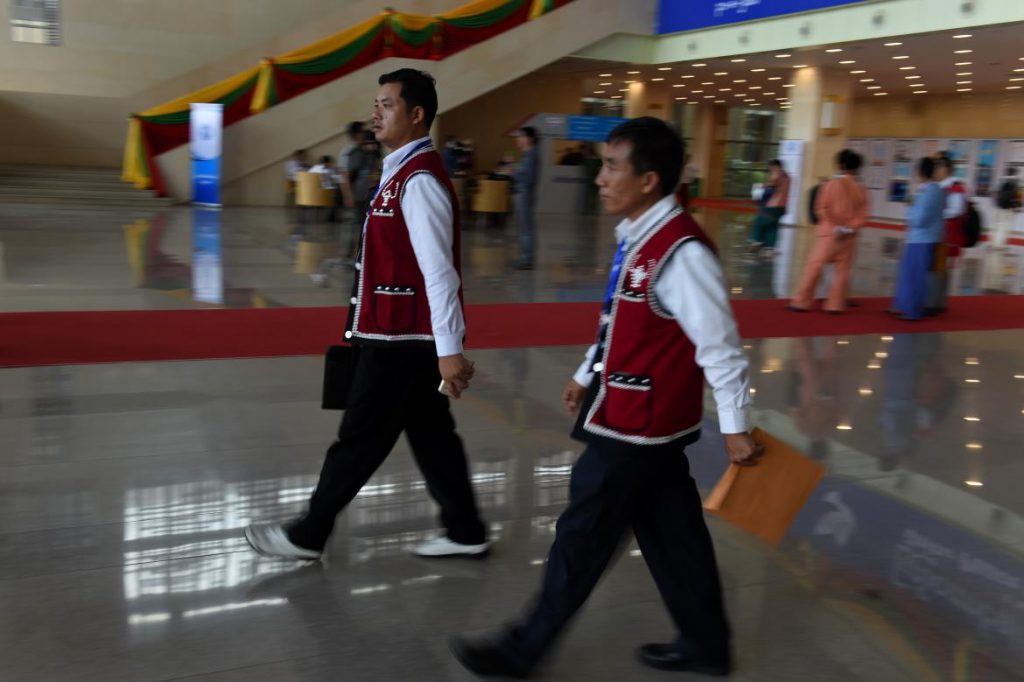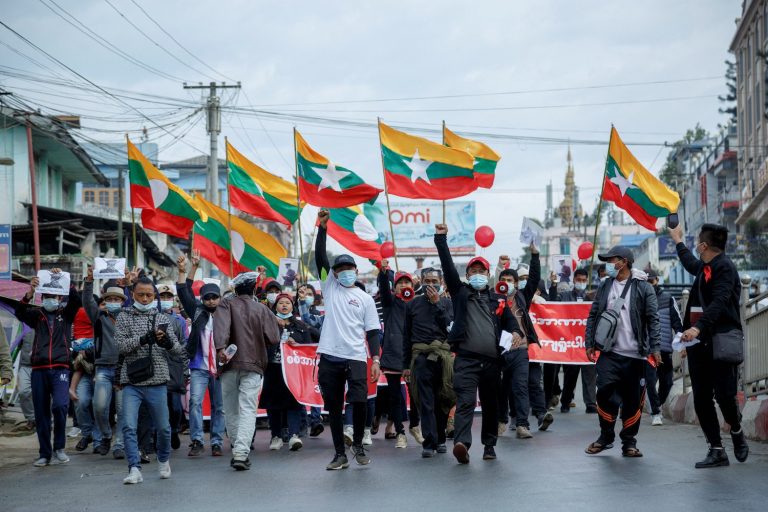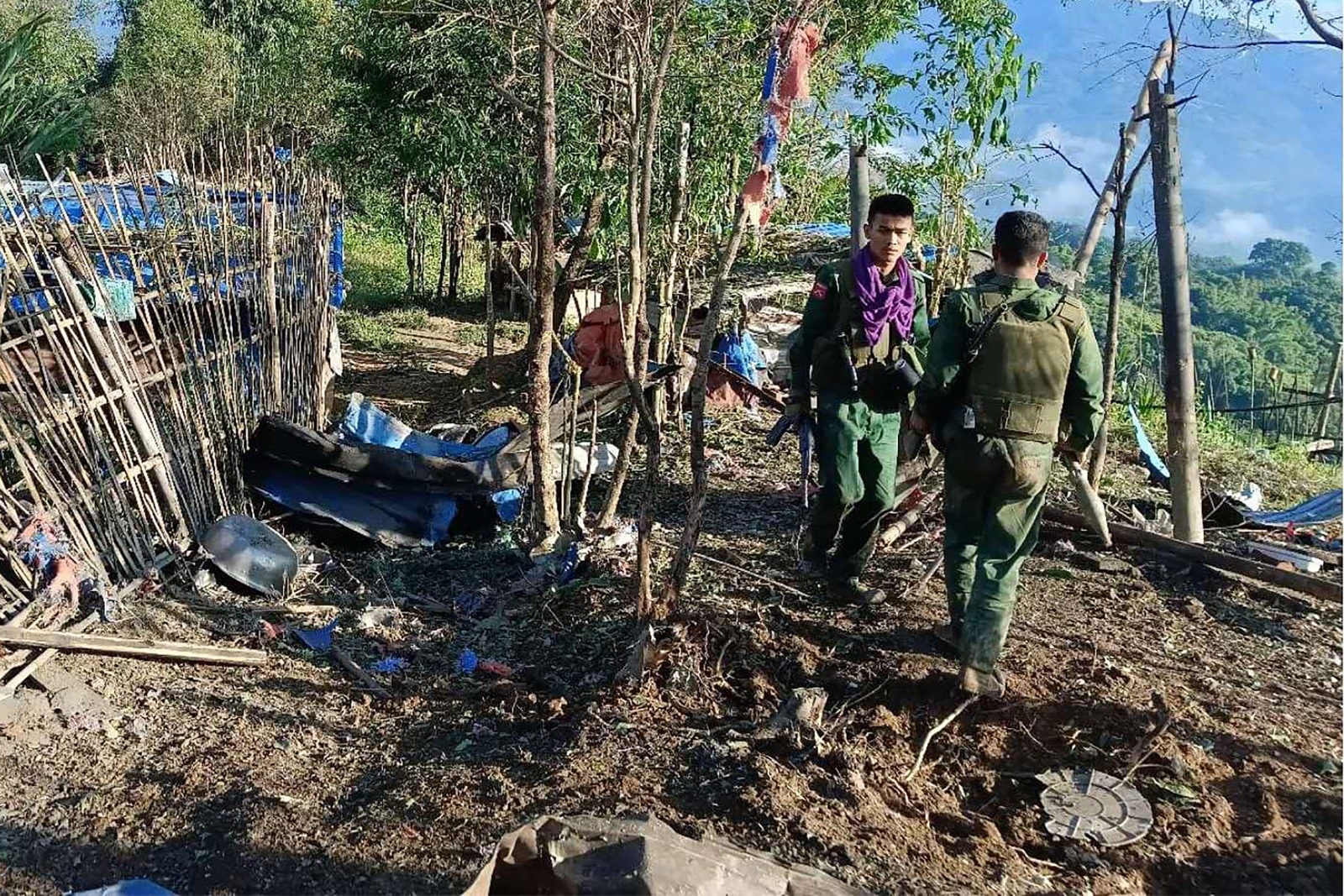The decision by the United Wa State Army to invite reporters to its capital at Panghsang and its seizure of territory from a long-term ally reflects serious concern over its future.
By SITHU AUNG MYINT | FRONTIER
THE United Wa State Army — Myanmar’s largest ethnic armed group, with an estimated 20,000-25,000 troops — has been much in the news recently.
The UWSA has its headquarters at Panghsang in northern Shan State on the border with China and also controls territory on the border with Thailand. In a rare move, the usually media-shy UWSA invited reporters to Panghsang earlier this month for interviews with its leaders.
The invitation came after an UWSA offensive in late September resulted in the seizure of two mountain outposts and a checkpoint from its long-time ally, the National Democratic Alliance Army, known as the Mong La group.
The UWSA’s walk-out of the 21st Century Panglong Union Peace Conference on September 1 because of a misunderstanding over accreditation meant that it did not have the opportunity given to all participating groups of presenting a policy statement at the event. However, its statement was recorded by the conference convening committee and the UWSA paid K8 million to publish the document in a journal.
Support more independent journalism like this. Sign up to be a Frontier member.
This week I would like to explore the concerns of the UWSA and their influence on its recent activities.
The UWSA’s biggest worry is the change in relations between Myanmar and China. When State Counsellor Daw Aung San Suu Kyi visited China in mid-August, she asked its leaders, including President Xi Jinping, to support the peace process in Myanmar.
The Chinese side reacted positively to the request and subsequently pressured both the UWSA and the NDAA to attend the Union Peace Conference. China plays an important indirect role in the peace process because of its influence over the many ethnic armed groups based along the border, such as the UWSA, NDAA and Kachin Independence Army. None of the three groups signed the Nationwide Ceasefire Agreement in October 2015.
Despite the Chinese pressure, the UWSA was a reluctant participant in the peace conference and sent a low-level delegation. The improvement in relations with China and its interest in a successful peace process worries the UWSA because it depends on Beijing for arms, ammunition, food and communications.
The UWSA is also concerned about the Mong La group’s decision to participate in the peace process under the National League for Democracy government. The decision reflected the positive response from China to the State Counsellor’s request and the possibility of a change in Beijing’s attitude toward the ethnic armed groups over which it has influence.
The UWSA and the NDAA have been close political and military allies since they emerged from the collapse of the Communist Party of Burma in 1989. The UWSA is concerned that fruitful negotiations among the government, the Tatmadaw and the NDAA over the peace process could have implications for its control over territory on the border with Thailand.
These concerns are partly based on the offensive launched by Tatmadaw against the Myanmar National Democratic Alliance Army early last year after its failed attempt to regain control over the Kokang region.
It was a combination of these concerns that prompted the UWSA offensive to seize the two mountain outposts and the checkpoint from the Mong La group.
The UWSA is also worried about the decision by the United States to lift most sanctions against Myanmar.
The decision resulted in U Than Shwe and U Maung Aye and other former senior junta leaders, as well as prominent cronies, being removed from a US Treasury blacklist, but not the UWSA, which is accused by Washington of involvement in drug trafficking.
The UWSA seems incapable of changing its policies in line with evolving conditions. In the presentation it prepared for the Union Peace Conference, it reiterated a longstanding demand for a separate state.
If the UWSA cannot adopt policies compatible with the changing attitude of China and that of its former ally, the NDAA, its days may be numbered.







